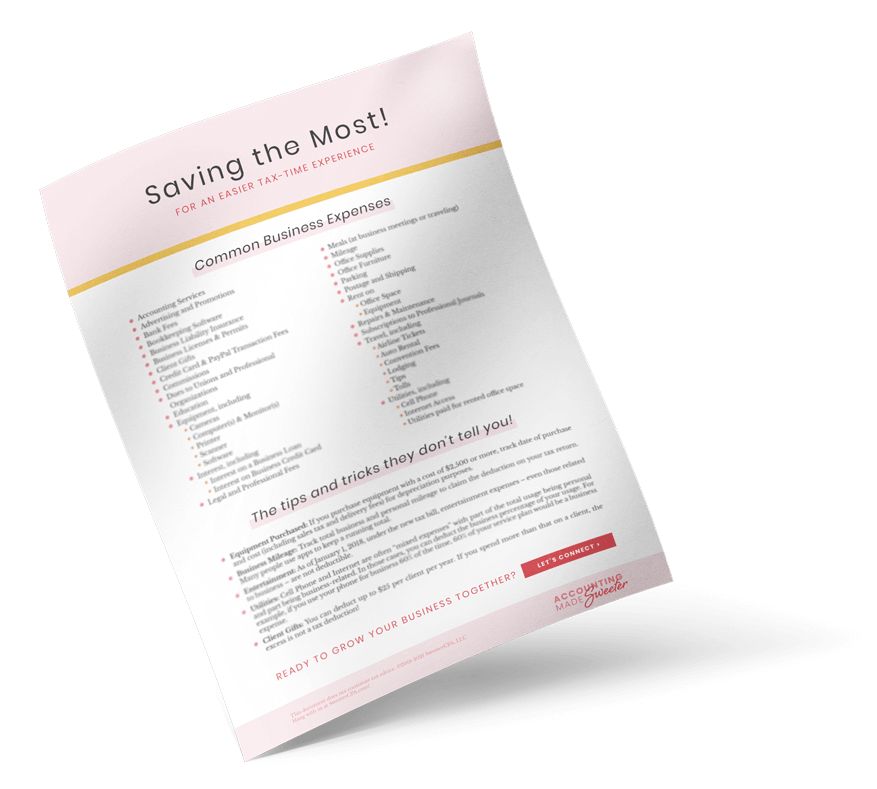If you sell products, you are required to collect sales tax and submit it to your state.
The Basics
Sales tax must be collected on the sale of tangible goods. What is a tangible good? Something you can hold in your hands.
Sales taxes are not collected on services (you can’t hold “consulting” in your hands, can you?). However, some people sell both tangible and intangible goods, so be sure you are collecting sales tax appropriately. For example, if you are a photographer, the photographic services you provide are intangible – people are paying for your skill. If you provide a photo album, though, that is a tangible good and you must collect sales tax.
A best practice for people selling goods and services is to list each item separately on your invoice so you can show the state authorities (and your customers!) that you are only collecting sales taxes on the exchange of physical goods.
Things change if you sell in multiple states
Currently, you are required to collect sales taxes if you sell to someone in a state where you have “nexus” or a connection. You can have a connection to a state if you live there, have a retail store there, or are visiting for a show or fair. Each state sets its own rules for what constitutes a connection for sales tax purposes, so do your research before you set up stores or take on partners in other states.
The most common situation, however, is the sole proprietor reaching out-of-state customers through an online store such as Etsy, Cargoh, or Big Cartel. If this is you, sales tax must be collected if you sell to someone in the state in which you live and run your business. If you sell to someone in another state, you are not responsible for sales tax collection (technically, the purchaser is required to submit sales tax to their home state). Various online retailers have tools to help you collect sales tax.
Visiting Artists
If you travel to sell your goods at various trade shows and fairs throughout the United States, be sure to check with the state in which the event is located to see if you need to apply for a license to collect sales tax on items sold at the event.
Remitting Sales Tax to the State
Again, each state is different, but most operate on a three-tiered system. The smallest retailers (as determined by the amount of sales tax collected in the previous year) are required to remit sales tax payments annually. As your business grows, the state will want their money sooner: medium retailers pay the state quarterly and large retailers must file every month.
Remember, every state is different! Rates vary from place to place and some states don’t have sales tax at all, so always consider your own personal situation.



